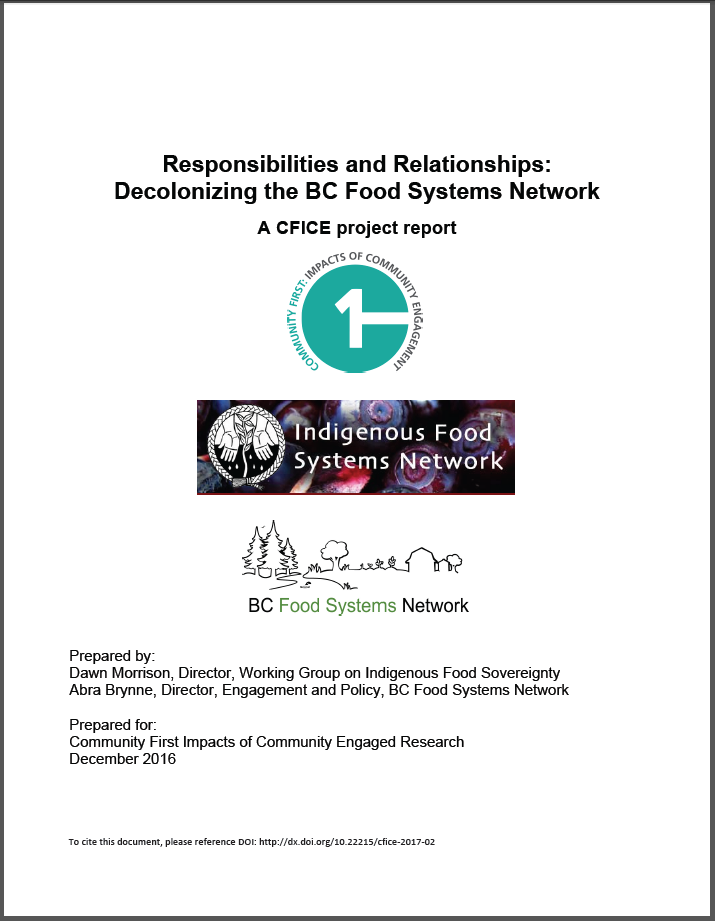The BC Food Systems Network (BCFSN) strives to build and maintain networks inclusive of diversity of cultures including Indigenous and non-Indigenous communities. In 2012, with support from Community First: Impacts of Community Engagement’s (CFICE) Community Food Security (CFS) Hub the BCFSN staff developed an evaluation to better understand how they can build their cross cultural capacity. Building on the existing Decolonizing Research and Relationships Methodology developed by the Working Group on Indigenous Food Sovereignty (WGIFS), this project sought to deepen BCFSN staff’s understanding of the ways Indigenous food sovereignty is being expressed, and will provide a framework for future community based research to ensure it aligns with the values and visions of the WGIFS in the 4th world reality in which we live.
BCFSN’s efforts to decolonize their language, practice, and paradigm can contribute to building more respectful and effective community-campus relationships between academia and
Indigenous communities. This project resulted in many outcomes, including the report Responsibilities and Relationships: Decolonizing the BC Food Systems Network.
The Network has determined that in order to truly support food sovereignty in the region in which they work, they must better understand the impacts of colonization on both Indigenous and settler communities. Food sovereignty is founded on principles, practices, and policies of social and environmental justice. There can be no food sovereignty for Canadians until we redesign institutional frameworks to support and implement Aboriginal Title and Rights that will enable Indigenous peoples to protect, conserve and restore the complex system of bio-cultural heritage in the land and food system as a whole.
